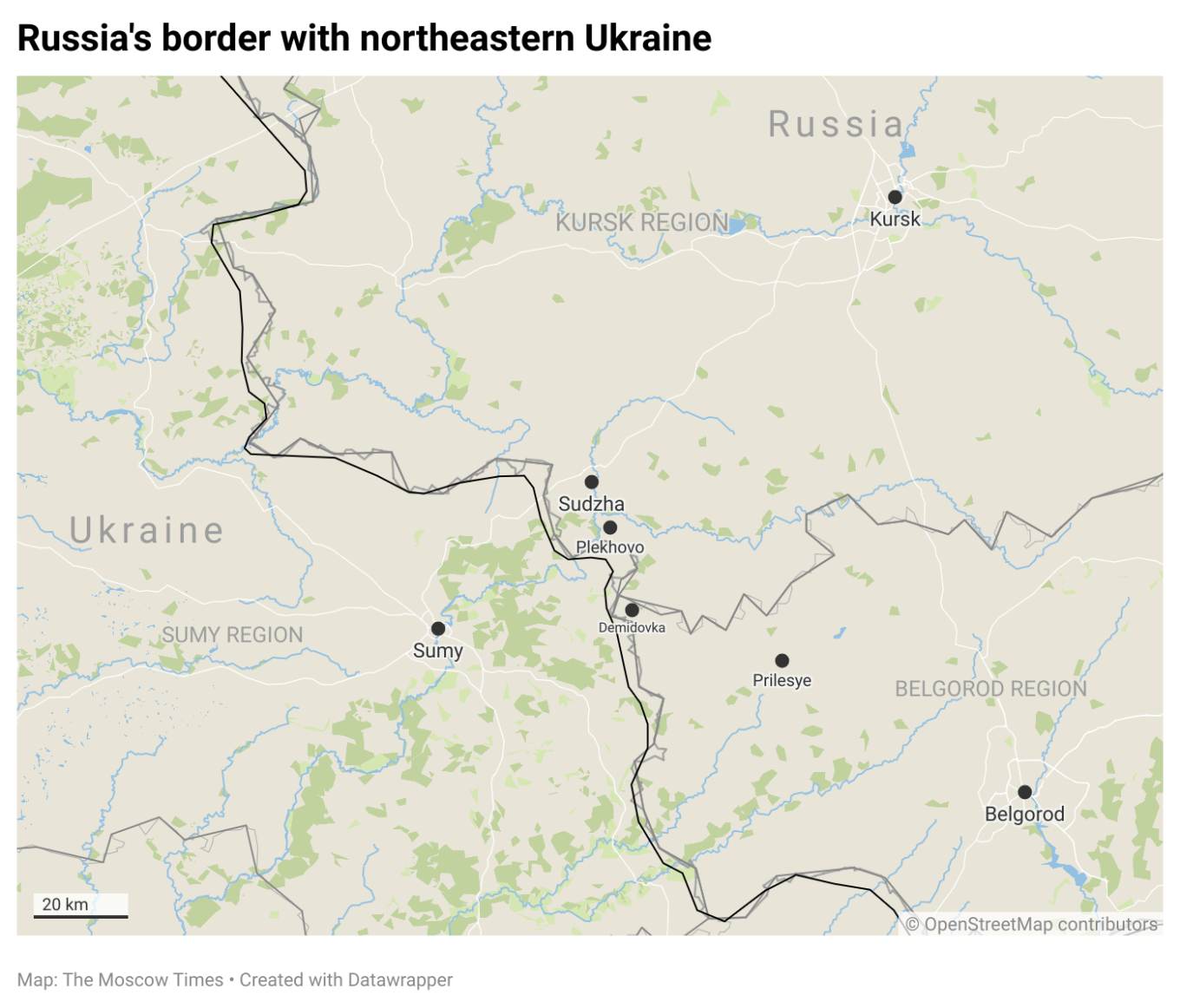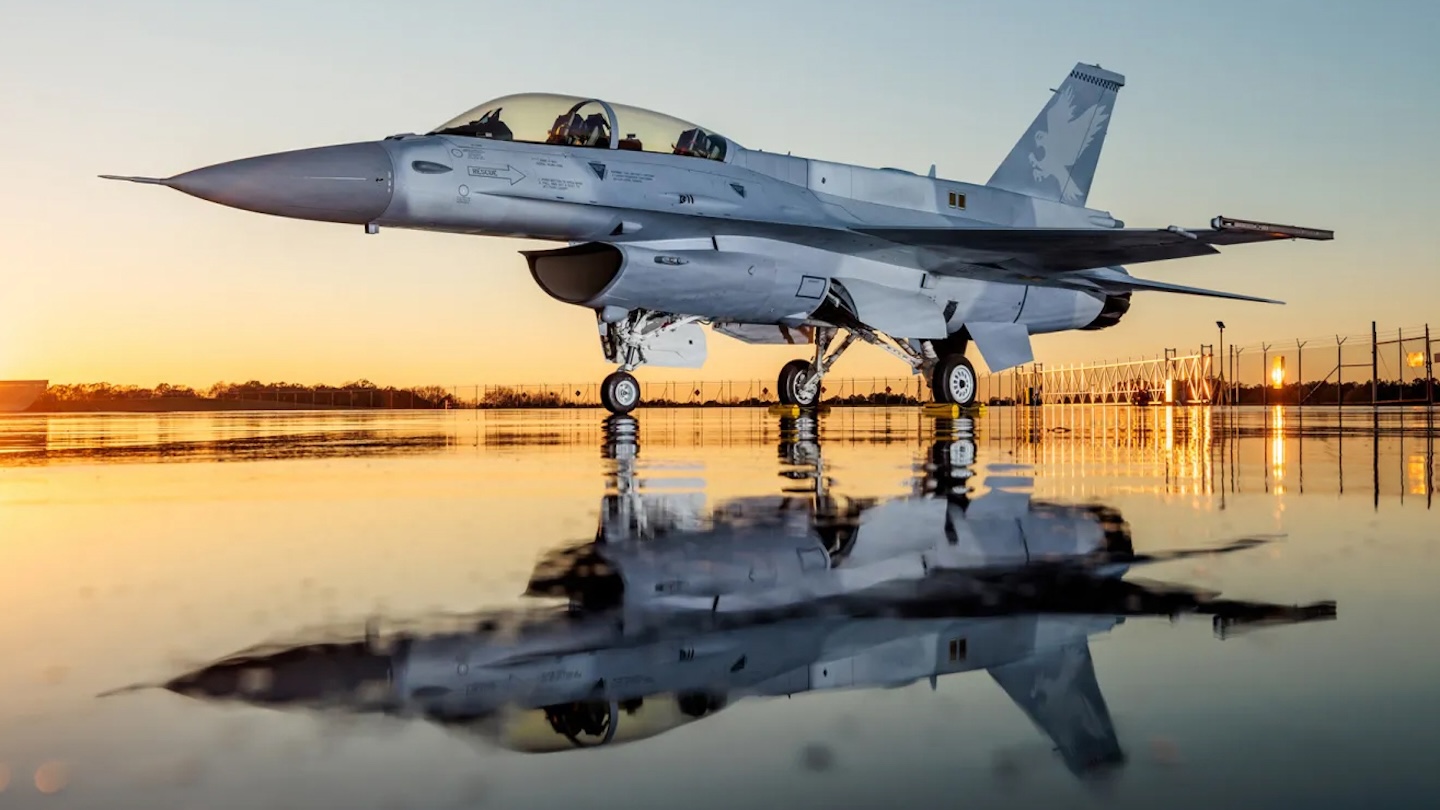Ukraine appears to be ramping up its cross-border assaults and efforts to penetrate Russian territory, as ground fighting continues without pause on both sides despite efforts by the U.S. to negotiate peace.
Ukrainian forces have in recent weeks intensified attacks in Russia’s border regions of Belgorod and Bryansk — a step that experts see as an attempt to divert Russia’s focus from the Kursk region, where Moscow’s troops are trying to drive out remaining Ukrainian forces.
The attacks in Belgorod and Bryansk appear much smaller in scale compared to Ukraine's Kursk incursion last August, which saw Ukrainian forces capture over 1,000 square kilometers.
Kyiv had hoped to use its Kursk foothold as leverage in peace talks with Russia, which has occupied swathes of eastern and southern Ukraine since launching its full-scale invasion in 2022.
Russia accused Kyiv of several incursion attempts into its territory amid discussions between Moscow and Washington on the terms of a potential ceasefire in Ukraine.
Moscow had previously dismissed a joint U.S.-Ukrainian proposal for a 30-day ceasefire, while Kyiv also accused Russia of dragging out negotiations with no intention of ending its military campaign.
Here is what we know about the situation in the border regions — and what the latest attacks’ timing could signal:
Belgorod
Ukrainian forces launched their offensive on Russia’s Belgorod region last month as Russian President Vladimir Putin and U.S. counterpart Donald Trump were speaking by phone.
The Russian Defense Ministry said on March 18 that Ukrainian forces attempted to breach Russian territory in the western part of the Belgorod region, advancing toward the villages of Demidovka and Prilesye.
The ministry said Russian forces prevented the border crossing — with Ukrainian losses amounting to up to 60 personnel, a tank and seven armored vehicles — and dispersed the remaining Ukrainian troops.
Pro-war Russian military bloggers later acknowledged that Ukraine’s forces were on Russian soil.

Since then, the situation in the area has remained "tense," according to local authorities, with constant missile threat warnings. Starting March 19, civilian access to the area has been restricted.
Kyiv has not officially announced an advance on Belgorod and Bryansk. Ukrainian President Volodymyr Zelensky said last week the Ukrainian armed forces were conducting operations in the Kursk region, implying that these efforts may spill over into neighboring regions. Three Ukrainian military and government officials confirmed to The New York Times last week that an operation “was continuing” in Belgorod.
Russian military bloggers also acknowledged last week that intensified fighting in the villages of Demidovka and Popovka.
According to one of the largest Russian military Telegram channels, Archangel of the Special Forces, which has 1,162,000 subscribers, Russian forces only controlled “half of Demodivka” last week, while "the enemy was still present in Popovka."
The channel, which has purported ties to the Russian military, reported Monday that Ukraine deployed additional troops to Demidovka and “fighting is ongoing in Popovka, which the enemy was actively defending and attempting to reinforce with new troops.”
Bryansk region
Russian troops prevented “an attempt by Ukrainian forces to invade” the Bryansk border region, the state-run RIA Novosti news agency reported Tuesday.
It added that Russia’s forces also struck a Ukrainian unit of around 30 soldiers near the Ukrainian village of Hremiach, located at the border with the Bryansk region.
Kursk region
When Ukraine launched a ground assault into the Russian border region of Kursk last year, it captured at least 1,268 square kilometers.
Moscow has taken much of this territory back over the past several weeks, including the town of Sudzha — which was until recently a strategic hub for Russian gas transit to Europe. As of the end of March, Kyiv only controlled a narrow stretch of land in the south of the village of Plekhovo.
Russia also evacuated hundreds of civilians who were previously trapped in areas under Ukraine's control.
The Russian Defense Ministry reported on Monday that the fighting in the Kursk region was still ongoing.
Why are the attacks intensifying now?
Russia described the attacks as an effort to disrupt the peace talks with Washington and “to create a negative backdrop for the planned negotiations.”
The state-run RIA Novosti news agency, citing military sources, also said that Kyiv apparently planned to capture “new areas in the Kursk region and gain at least some ground in Belgorod.”
Ukrainian military expert and former SBU security service officer Ivan Stupak suggested the Ukrainian intensified attacks were likely aimed at “diverting attention” of Russia’s forces from other fronts.
"The goal is to divert the attention of the Russian Federation from the Kursk region where the pressure is intense and to distribute the strain more evenly,” Stupak said.
According to Stupak, the recent attacks may be a response to Russian advances in the Sumy region — the Ukrainian border region bordering Kursk where Russia recently advanced while pushing Ukrainian forces from Kursk.
“The Russian rhetoric is clear,” Stupak told The Moscow Times. “But Ukraine fully understands that wherever the Russian military machine breaks through, it will be nearly impossible to push it back.”
“With the pressure in Sumy, everything happening in Belgorod and Bryansk, including drone attacks, is an attempt to divert attention and spread out Russian forces along the front line,” he added.
A Message from The Moscow Times:
Dear readers,
We are facing unprecedented challenges. Russia's Prosecutor General's Office has designated The Moscow Times as an "undesirable" organization, criminalizing our work and putting our staff at risk of prosecution. This follows our earlier unjust labeling as a "foreign agent."
These actions are direct attempts to silence independent journalism in Russia. The authorities claim our work "discredits the decisions of the Russian leadership." We see things differently: we strive to provide accurate, unbiased reporting on Russia.
We, the journalists of The Moscow Times, refuse to be silenced. But to continue our work, we need your help.
Your support, no matter how small, makes a world of difference. If you can, please support us monthly starting from just $2. It's quick to set up, and every contribution makes a significant impact.
By supporting The Moscow Times, you're defending open, independent journalism in the face of repression. Thank you for standing with us.
Continue
![]()
Not ready to support today?
Remind me later.

 By The Moscow Times | Created at 2025-04-01 13:05:20 | Updated at 2025-04-02 18:10:15
1 day ago
By The Moscow Times | Created at 2025-04-01 13:05:20 | Updated at 2025-04-02 18:10:15
1 day ago








